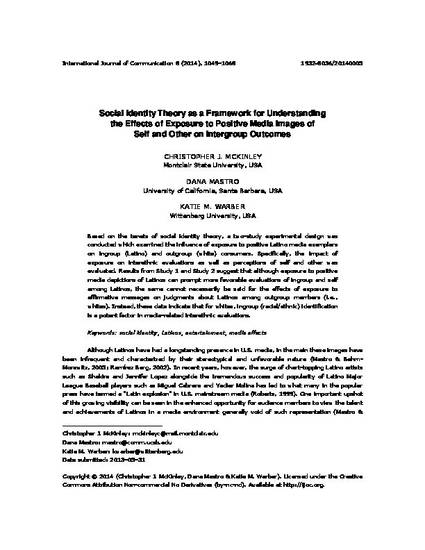
Based on the tenets of social identity theory, a two-study experimental design was conducted which examined the influence of exposure to positive Latino media exemplars on ingroup (Latino) and outgroup (white) consumers. Specifically, the impact of exposure on interethnic evaluations as well as perceptions of self and other was evaluated. Results from Study 1 and Study 2 suggest that although exposure to positive media depictions of Latinos can prompt more favorable evaluations of ingroup and self among Latinos, the same cannot necessarily be said for the effects of exposure to affirmative messages on judgments about Latinos among outgroup members (i.e., whites). Instead, these data indicate that for whites, ingroup (racial/ethnic) identification is a potent factor in media-related interethnic evaluations. [ABSTRACT FROM AUTHOR]
Available at: http://works.bepress.com/christopher-mckinley/32/
